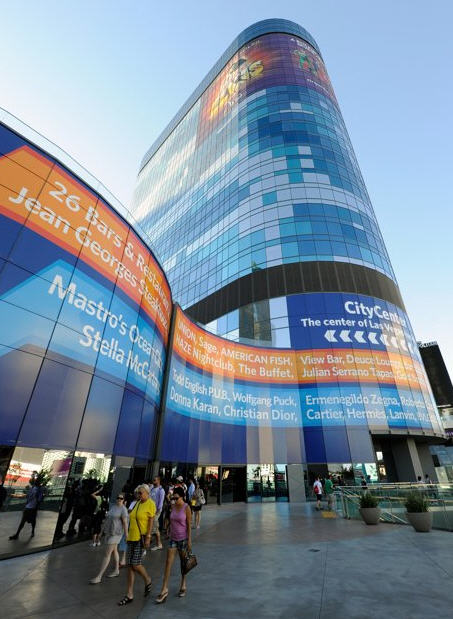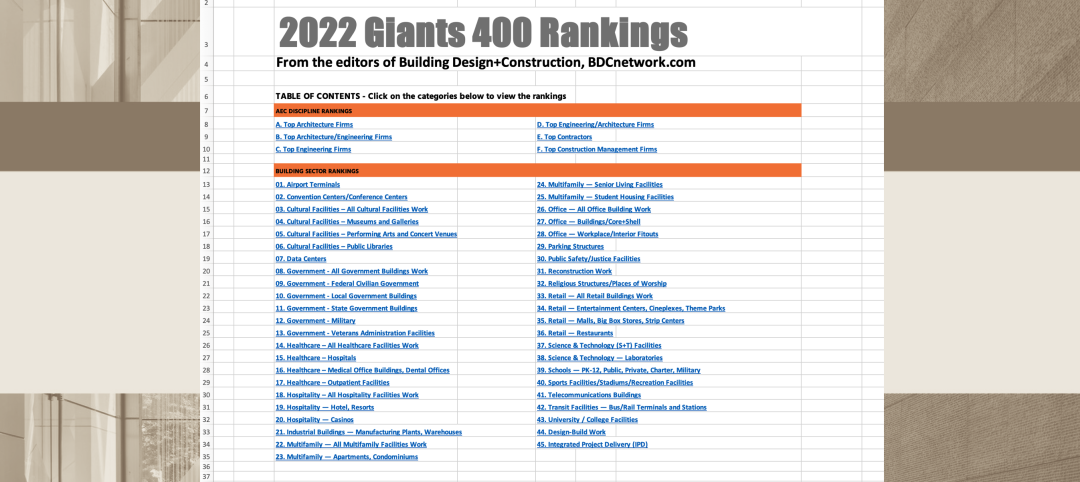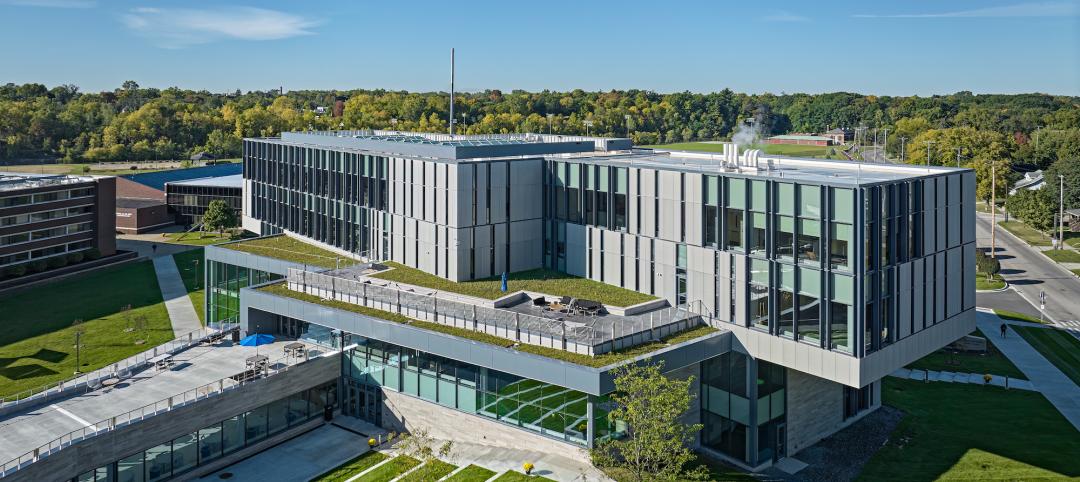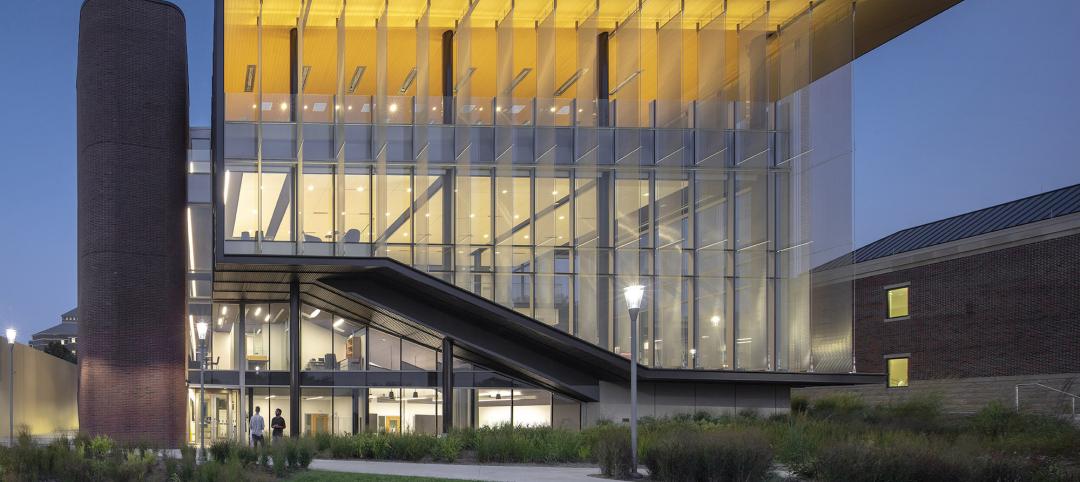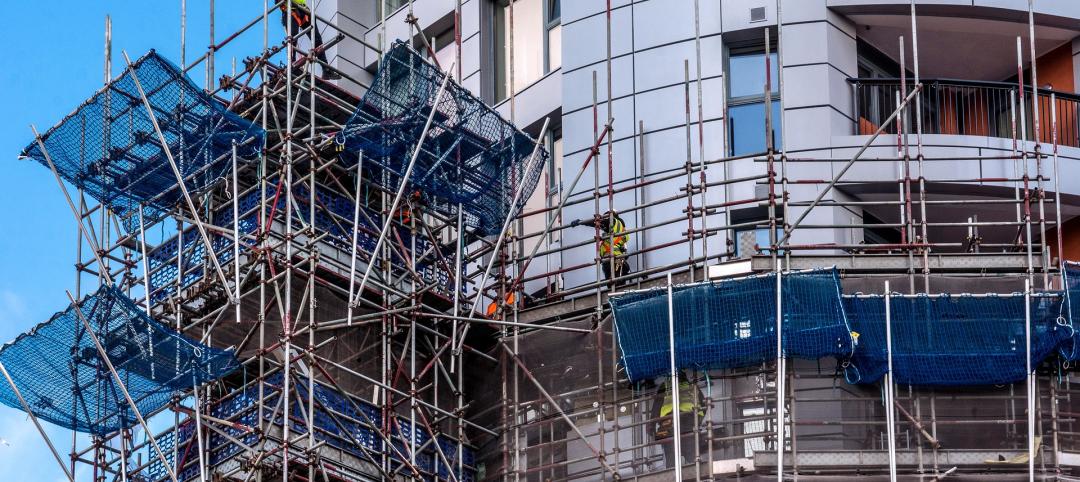The hearing over what to do with the unfinished Harmon Hotel began earlier this week with a legal nod toward Las Vegas' penchant for spectacular implosions.
Attorneys for a couple of the contractors on the project in the CityCenter complex argued for letting it stand at least until a broader trial over construction defects and determining financial responsibility begins in February. Anything less would make a fair hearing impossible, they said.
"If this building (Harmon) falls, it will travel around the world," said Jeffery Garofalo, representing Ceco Concrete Construction, referring to the expected news coverage. "It may poison the jury pool and be highly prejudicial" because so many people would associate the Harmon with horrible contractor performance.
But MGM Resorts International Inc., the half-owner and developer of the $8.5 billion CityCenter, argued public safety must come first. Nearly a year ago, the Clark County Building Division raised concerns that numerous building code defects could cause the 26-floor building to collapse in an earthquake. Last August, a CityCenter study concluded that demolition made more sense than repair.
"We're here in this courtroom today, about four years after the first safety-threatening violations were discovered," CityCenter attorney Steve Morris said. "Since then, nothing has been done."
Contractors have scheduled their own expert witnesses, who are expected to say computer modeling that prompted earthquake concerns was riddled with flaws. Perini Building Co. Inc., the general contractor, has offered in the past to repair the Harmon as the best solution. The hearing is expected to continue through Thursday.
Contractors want to preserve the Harmon as possibly the world's largest trial exhibit so they can conduct physical tests to rebut allegations of pervasive shoddy workmanship. CityCenter has so far provided raw data about mistakes, but not a final list that would explain the problems. Until then, the contractors say, they don't know exactly which tests to conduct.
The court-imposed deadline for what is called destructive testing, where small sections of the building are demolished to view the underlying work, has already passed. Morris contended that the contractors already had ample opportunity to gather any evidence they needed.
Morris also tried to dispel the idea that MGM Resorts had used its political muscle to prod the county into taking its side.
"There aren't any secrets here," he said. "There aren't any smoke-filled back rooms where conspiracies are being developed."
He said that the demolition bill would run about $30 million. Nearly $280 million was spent on the Harmon's never-finished construction.
The larger issue underlying the sprawling case, which brought more than two dozen attorneys to the courtroom of Clark County District Court Judge Elizabeth Gonzalez, involves whether Perini should be paid its approximately $500 million fee or whether CityCenter is owed damages for a job poorly done.
The testimony began with CityCenter consulting engineer Chukwuma Ekwueme methodically showing photo after photo of parts of the Harmon, where he and his team had chipped away the concrete pillars and beams to examine the steel reinforcing bars inside. Through dozens of examples, he pointed out construction errors such as missing or poorly spaced bars, which could contribute to structural failure.
His work involved taking more than 10,000 photographs and writing out 1,000 pages of field notes, he said. BD+C
Related Stories
Office Buildings | Feb 9, 2023
Post-Covid Manhattan office market rebound gaining momentum
Office workers in Manhattan continue to return to their workplaces in sufficient numbers for many of their employers to maintain or expand their footprint in the city, according to a survey of more than 140 major Manhattan office employers conducted in January by The Partnership for New York City.
Giants 400 | Feb 9, 2023
New Giants 400 download: Get the complete at-a-glance 2022 Giants 400 rankings in Excel
See how your architecture, engineering, or construction firm stacks up against the nation's AEC Giants. For more than 45 years, the editors of Building Design+Construction have surveyed the largest AEC firms in the U.S./Canada to create the annual Giants 400 report. This year, a record 519 firms participated in the Giants 400 report. The final report includes 137 rankings across 25 building sectors and specialty categories.
University Buildings | Feb 8, 2023
STEM-focused Kettering University opens Stantec-designed Learning Commons
In Flint, Mich., Kettering University opened its new $63 million Learning Commons, designed by Stantec. The new facility will support collaboration, ideation, and digital technology for the STEM-focused higher learning institution.
Sustainability | Feb 8, 2023
A wind energy system—without the blades—can be placed on commercial building rooftops
Aeromine Technologies’ bladeless system captures and amplifies a building’s airflow like airfoils on a race car.
Codes and Standards | Feb 8, 2023
GSA releases draft of federal low embodied carbon material standards
The General Services Administration recently released a document that outlines standards for low embodied carbon materials and products to be used on federal construction projects.
University Buildings | Feb 7, 2023
Kansas City University's Center for Medical Education Innovation can adapt to changes in medical curriculum
The Center for Medical Education Innovation (CMEI) at Kansas City University was designed to adapt to changes in medical curriculum and pedagogy. The project program supported the mission of training leaders in osteopathic medicine with a state-of-the-art facility that leverages active-learning and simulation-based training.
Multifamily Housing | Feb 7, 2023
Multifamily housing rents flat in January, developers remain optimistic
Multifamily rents were flat in January 2023 as a strong jobs report indicated that fears of a significant economic recession may be overblown. U.S. asking rents averaged $1,701, unchanged from the prior month, according to the latest Yardi Matrix National Multifamily Report.
Giants 400 | Feb 6, 2023
2022 Reconstruction Sector Giants: Top architecture, engineering, and construction firms in the U.S. building reconstruction and renovation sector
Gensler, Stantec, IPS, Alfa Tech, STO Building Group, and Turner Construction top BD+C's rankings of the nation's largest reconstruction sector architecture, engineering, and construction firms, as reported in the 2022 Giants 400 Report.
Giants 400 | Feb 6, 2023
2022 Transit Facility Giants: Top architecture, engineering, and construction firms in the U.S. transit facility sector
Walsh Group, Skanska USA, HDR, Perkins and Will, and AECOM top BD+C's rankings of the nation's largest transit facility sector architecture, engineering, and construction firms, as reported in the 2022 Giants 400 Report.
Giants 400 | Feb 6, 2023
2022 Telecommunications Facility Sector Giants: Top architecture, engineering, and construction firms in the U.S. telecommunications facility sector
AECOM, Alfa Tech, Kraus-Anderson, and Stantec head BD+C's rankings of the nation's largest telecommunications facility sector architecture, engineering, and construction firms, as reported in the 2022 Giants 400 Report.


